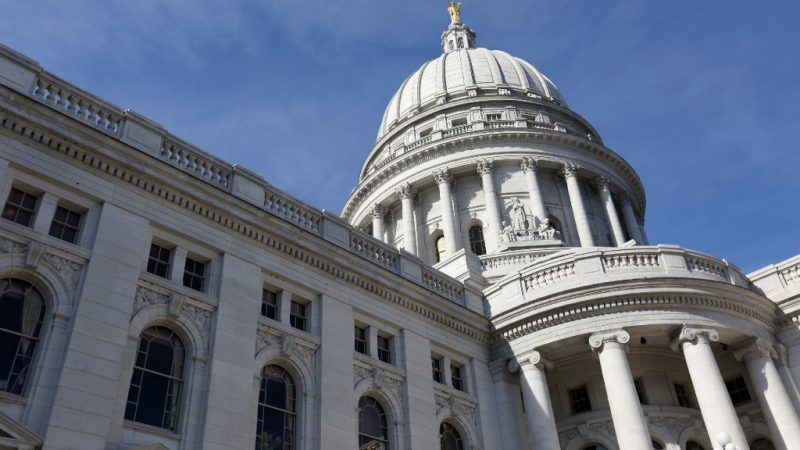The Speaker’s Task Force on Suicide Prevention is recommending legislation that would provide grants to groups that train staff at a firearm retailer or range how to avoid selling or renting guns to someone who is suicidal.
Another bill would include $500,000 in grants every two years to groups, including municipalities, for suicide prevention programming that could include buying trigger locks and firearm locks, lockboxes and safes, according to a copy of the overview obtained by WisPolitics.com.
But the committee’s interim report doesn’t include any new restrictions on gun ownership or access as called for by some Dems.
Altogether, the interim report calls for 10 new bills, including the grants for groups that train staff at firearm retailers and ranges. The bill would require the Department of Health Services to award $150,000 every two years to groups that share guidelines or train the staff.
>> WisPolitics is now on the State Affairs network. Get custom keyword notifications, bill tracking and all WisPolitics content. Get the app or access via desktop.
The $500,000 in grants for suicide prevention programming also could go toward marketing suicide prevention resources and sponsoring local “culturally competent training.”
GOP Rep. Joan Ballweg, who chaired the task force, plans to formally announce the committee’s recommendations at a news conference tomorrow. Ballweg and Assembly Speaker Robin Vos, R-Rochester, didn’t immediately return calls seeking comment.
The other bills proposed in the interim report would:
*vest DHS with the duty to implement a suicide prevention program that raises public awareness and provides training for law enforcement, health care providers, school employees and others.
*require DHS to award a $110,000 grant each year to the HOPELine, supported by the Center for Suicide Awareness to support staff, training and expenses. The 2019-21 budget already allocated money for the hotline. The overview doesn’t make clear if the bill would be in addition to that.
*appropriate $250,000 annually for distribution through DPI for high schools to support peer-to-peer suicide prevention programs.
*require DPI to annually award a grant to a cooperative educational service center to support the work of the Wisconsin Safe and Healthy Schools Center, which provides training and assistance to public schools. The effort would build the capacity of schools districts to implement prevention and intervention programs for alcohol, tobacco and drug abuse, along with mental health programs and efforts to support school safety. The bill would appropriate $70,000 in fiscal year 2019-20 and hen $200,000 in 2020-21.
*mandate some colleges and schools to include on student ID cards the contact information for a suicide prevention hotline.
*provide $10,000 every two years for farmer tuition assistance grants for low-income farmers to enroll in farm and business management classes offered by a tech college.
*require the Psychology Examining Board to issue an interim psychologist license to someone who meets all of the requirements for full certification except for the experience standards. Now, someone must have at least one year of experience, including 2,000 hours of supervised experience within a 24-month period. The bill would still require someone with an interim license to work under the direction of a qualified supervisor.
*mandate professionals such as substance abuse counselors and psychologists to complete at least two hours of suicide prevention continuing education every two years to renew their credentials.
See the interim report: https://www.wispolitics.com/wp-content/uploads/2019/09/190924Task.pdf



